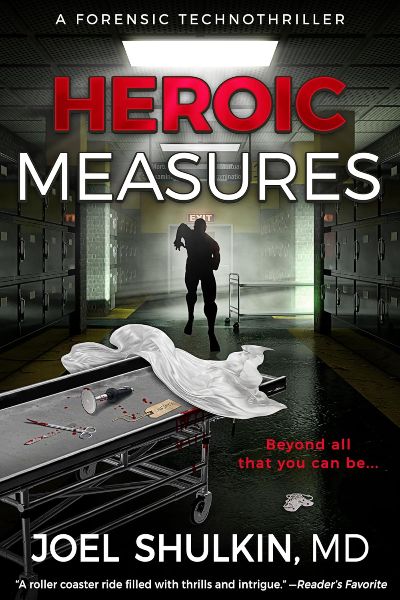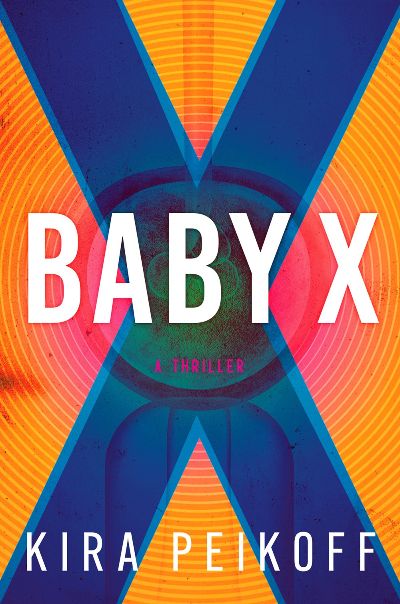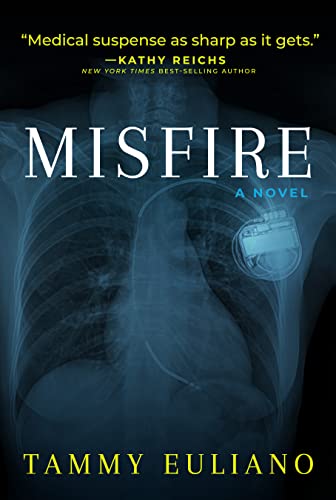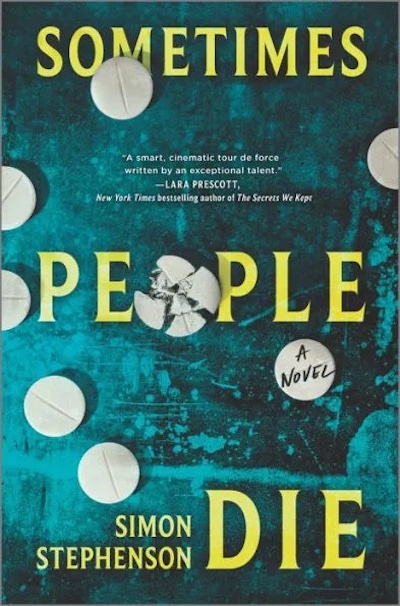Mailman Hank Davies lives in the small town of Bethlam, Nevada, and delivers to the same people every day. It’s predictable and consistent. One morning, he accidentally trips over a tree branch, and one of the envelopes opens, and he can see the letter inside. The page is blank. He secretly opens a couple more letters, which are also blank. When he talks to his wife, Iris, about the mystery, she shrugs it off and reminds him he needs to take better care of himself and not stress over trivial things. After Hank’s accident, his doctor warns him to take things easy. As Hank begins questioning his life and memories, a neighbor comes by in the middle of the night and says, “You can’t trust them. They mean you harm.” This cryptic message sends Hank on a perilous journey, questioning everything and everyone in his life. But if he learns the truth, it won’t set him free: It will destroy him. Bassoff weaves a tale that mixes Ira Levin with the best horror films, where you want to yell at the screen to warn a character of what is about to happen. This novel is an atypical chain, in which the more the story twists, the tighter the chain becomes instead of unwinding. Readers will not be able to put this book down until they learn the mystery behind the façade.
Medical
Colonel Stephen Englehart is a great medical examiner, which in the bureaucratic backwardness of the U.S. Army means he’ll be promoted any day now to paper pusher. No, thank you. Besides, he has an ambivalent attitude toward the whole organization, given that his soldier father was mostly absent and the “uncle” who took over—his father’s fellow soldier who is now one of Stephen’s superiors—is chilly at best. Retirement is beckoning, but his plans are exploded by five corpses arriving at his base. Don’t autopsy them, comes the order. Just hold them until their storm-damaged plane is repaired. That’s weird enough, but then one of the dead seems to have been untouched by the grenade he was supposed to have been killed by, and a medical examiner’s worst nightmare comes true: the man opens his eyes. At the same time, Stephen’s sister, Major Sharon Englehart, is arriving in Germany, where Stephen is based, and the two will try to steal some time to meet…but she never arrives at her post. The secrets, lies, and fearsome technology behind this fast-moving, exciting novel will keep readers turning the pages as they also enjoy the sibling loyalty and Stephen’s sidestepping of military rules—including his affair with a subordinate. This is a great step into military and technothrillers for fans of Patricia Cornwell and other forensic crime authors, and an equally perfect introduction to more relationship-based novels for military fiction buffs.
Peikoff’s latest exploration into choice and free will takes the reader to a future in which families can choose their baby’s characteristics and genetic makeup before gestation and birth. It’s as simple as getting DNA, and clinics and pre-selection counseling have strict protocols to ensure the parents have the background necessary for a successful transaction. Celebrities need security to keep their DNA from inadvertently being left behind at places they frequent and then being stored in a black-market site called the Vault. For a fee, you can purchase a child that would be considered a legitimate son or daughter of that celebrity. A surrogate named Quinn starts to believe the source of the infant she’s carrying is not a widower’s dead husband’s DNA but a famous singer named Trace Thorne. A young journalist named Lily sees her older parents use unscrupulous methods to have another child. Peikoff does a terrific job of world-building a complex but realistic future full of jaw-dropping twists. Baby X is great sci-fi and reads like a terrifying episode of Black Mirror.
Romance? Check. Medical thriller? Check. Cozy? Mmm…sort of. This book has something for a range of readers, from those who like a second-chance romance to fans of Michael Crichton’s medical thrillers as well as readers who get a kick out of elderly relatives as sleuthing sidekicks. It stars Dr. Kate Downey, a young, widowed anesthesiologist (same profession as the author) who lives with her opinionated Aunt Irm. Irm has recently had an AICD implanted, an internal defibrillator that can shock the heart back to the right rhythm if necessary. (An author’s note explains that Dick Cheney had his AICD’s wireless capability disabled while he was Vice President so that nobody could control it and kill him.) At work, Kate sees a frightening pattern developing over a matter of days. Several AICD users have “misfires,” meaning that their device shocks them at just the wrong moment in a heartbeat, greatly endangering their lives. The suddenness and frequency of these issues seem suspect. As Kate rushes to protect Aunt Irm, she gains the help of a man she’s interested in, but is it too soon since her husband’s death, and what about her new love’s involvement in the business that makes the aberrant AICDs? Get ready for realistic and emotionally intertwined characters throughout this fast-moving tech puzzle; the shocking ending leaves much to ponder, making this a great choice for book clubs (discussion guide included)
If you open this book thinking it’s a medical thriller—which is how it’s marketed—then you’ll be terribly disappointed. But take it on its own terms and it is one of the most evocative and heart-rendering tales you’ll have encountered in quite a while. A young Scottish doctor, caught stealing and using opioids, is deemed fit to return to practice and lands in St. Luke’s—one of London’s roughest hospitals and a place that’s desperately in need of staff. Author Stephenson was trained as a doctor, and this book goes deeply—and fascinatingly—into life in the hospital. Add to this a great cast of characters, including George, an orthopedist, rugby player, and teddy bear of a man who rooms with our protagonist, helping to keep him grounded. The criminal element comes into play when it’s discovered that several of St. Luke’s patients have died from opioid overdoses, clearly at the hands of medical personnel, with our narrator suspect number one. Woven throughout the book are the stories of doctors throughout history who doubled as serial killers—these sojourns away from the narrative will drive some readers crazy but I found the context they provided fascinating. In the end, the book comes down to just a few characters and a couple of questions: How does medicine, “a dark and a terrible knowledge,” force its practitioners to see things differently? And what’s the impact when they do see differently?
Una Kelly is a pickpocket in 1883 New York City, artfully dodging the police and turning her loot over to the head of her pickpocket ring, the quietly ruthless Marm Blei. Una is saving her pay to leave this miserable life, but it’s slow going, so she chances a side gig—selling a trinket she steals rather than turning it over to Marm. This puts her at the site of a murder, and now she’s accused and on the run. Her unusual hiding place—one of the country’s first nursing schools, at Bellevue Hospital—is the intriguing, politics- and emotion-laden setting for most of the book. Only educated ladies are accepted as nurses, but Una is neither schooled nor genteel, and faking both. Her nervous, always-on-your-toes code switching will be familiar to immigrant readers as well as anyone who’s reached for something out of grasp, and heavy doses of realism are thrown in as Una fights bullies while making a great friend and even finding romance. Skendandore’s (The Second Life of Mirielle West) intrepid heroine continues investigating the crime she’s accused of, too, making the book a thoroughly enjoyable and compelling medical history, mystery, and romance. Side benefit: a look at attitudes toward the then-emerging science of blood transfusion.






